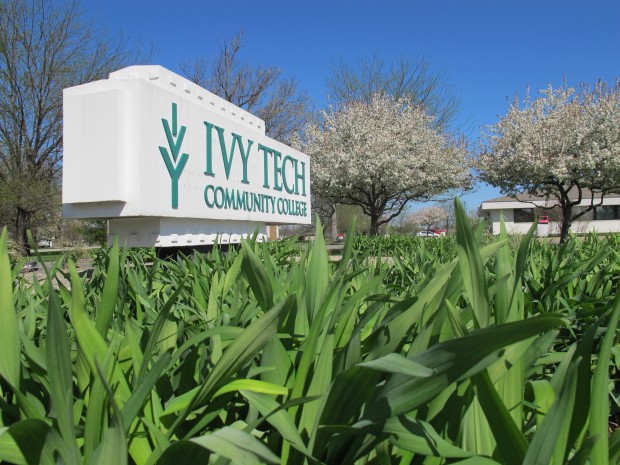Federal Budget Puts Low-Income College Grants On Chopping Block

Ivy Tech Community College is second in the nation for students using Pell Grants to attend college. (Kyle Stokes/Stateimpact Indiana)
The newest federal budget presented by President Donald Trump dramatically reduces money for grants designed to help low-income students go to college.
The budget would eliminate the Federal Supplemental Educational Opportunity Grants, money for students with exceptional financial need, and proposes a $3.9 billion reduction in Pell Grants, the primary federal college grant program.
Indiana’s Ivy Tech Community College system, the nation’s largest statewide community college system, ranks second in the nation for Pell Grant recipients. In the system, 30,766 students receive over $57 million in Pell Grants.
U.S. Sen. Joe Donnelly (D-Ind.) opposes the cuts.
“Destroying the Pell Grant program is one of the worst ideas you could possibly have,” Donnelly says. “Pell Grant hits right in the sweet spot of working families who are looking to figure out ‘How can I get my kids an education?'”
The Pell Grant program is the largest federal grant program for undergraduate students, according to the National Center for Education Statistics. The program annually provides qualifying students with up to $5,920 for college. Students whose family income is $50,000 a year or less can qualify.
The program was founded in 1972. The Trump administration says slashing the funding for Pell Grants leaves them “on sound footing for the next decade.”
This budget also calls the Federal Supplemental Educational Opportunity Grant program “a less well-targeted way to deliver need-based aid than the Pell Grant.” The administration says eliminating the $732 million program would “reduce complexity in financial student aid.”
Critics, like Donnelly, say this will bar low-income students from attending college. Unlike loans, the grants offered through these programs do not need to be paid back.
Donnelly says interest rates on student loans are too high.
“Why should we be able to get a house at 4 percent and our college loan is at 8 percent?” Donnelly says. “It makes no sense at all.”